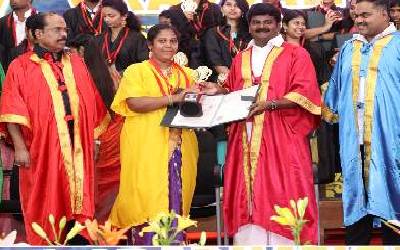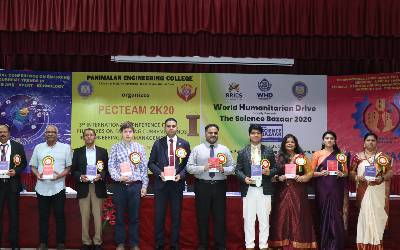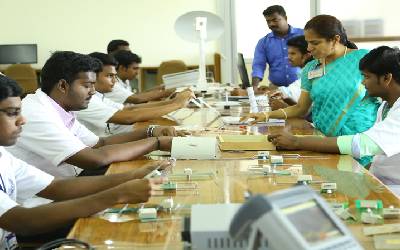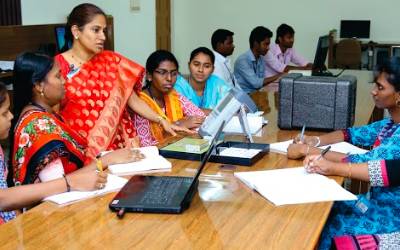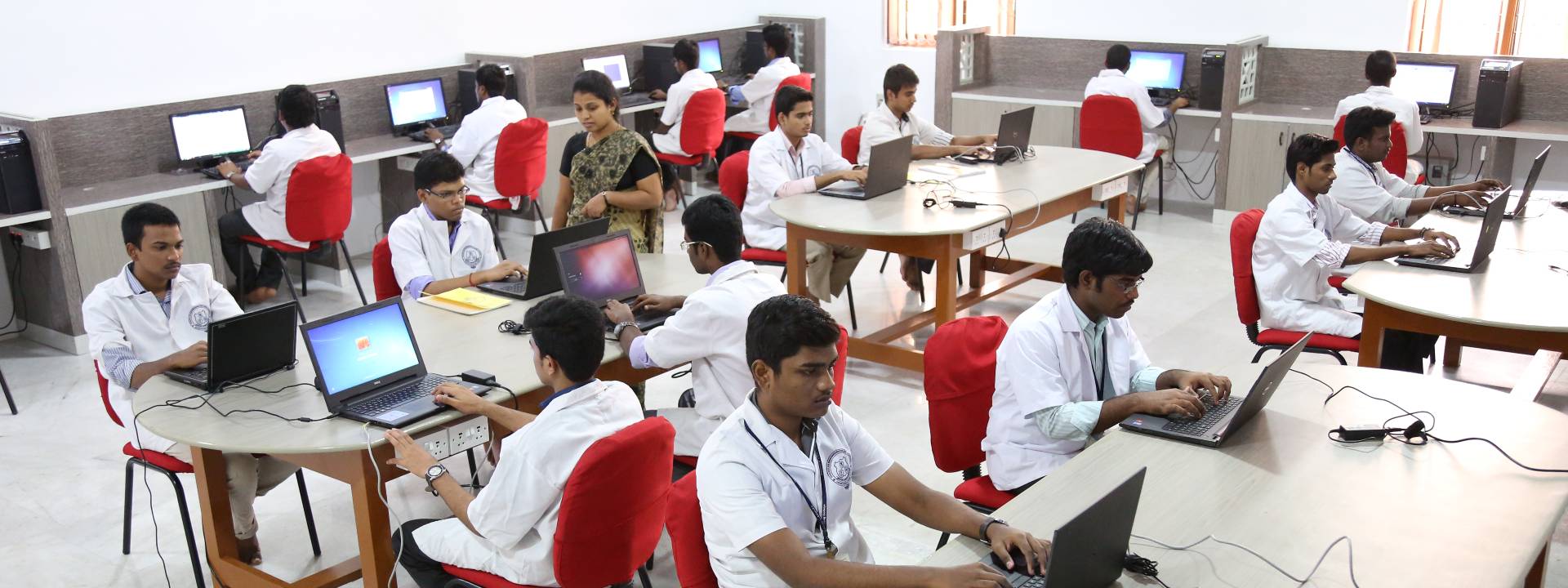
About the Programme
Vision and Mission
PEO'S,PO'S & PSO'S
Gallery
Department Library
About the Programme
With the rapid technological advancement around the globe, it is imperative for the engineers and scientists to learn and upgrade their knowledge, much after completing formal education in the college. Therefore, the Department of Electronics and Communication Engineering with its consistent group of faculty members, offers a sound programme at PG level in communication domain.
The Master of Engineering (M.E.) in Communication Systems is a specialized programme designed for individuals seeking to deepen their knowledge and skills in the field of communication technology. This programme combines theoretical principles with practical applications, preparing students for advanced roles in communications and related industries.
Necessity to pursue post-graduate studies
A two-year PG programme offered to provide a broad knowledge and practical experience in Communication Systems with advanced topics in RF, Signal Processing, Wireless Communication and Networking handled by experienced Ph.D. qualified faculty members. The programme boasts of an exclusive well equipped lab with state-of-the-art facilities.
Overall, the M.E. in Communication Systems is a gateway in understanding and shaping the future of communication technology, empowering students to make significant contributions to the industry. Also the course helps the Graduates to pursue careers in communications, network engineering, signal processing, research and development, and more, often working for tech companies, research institutions, or government agencies. With the continuous evolution of communication technologies, professionals in this field are in high demand, making this programme a valuable investment in one’s career.
Programme Structure
The M.E. Communication Systems programme typically includes a mix of core courses,
electives, and practical projects. Key components often include:
1. Core Courses: These cover fundamental topics such as signal
processing,
modulation techniques, information theory, and network design.
2. Electives: Students can choose from specialized topics such as
wireless
communication, optical networks, or satellite communication, allowing them to tailor
their education to their interests.
3. Practical Experience: Laboratory work and projects provide
hands-on experience,
enabling students to apply theoretical concepts to real-world scenarios.
Vision and Mission

VISION
To emerge as a Centre of excellence in providing quality education and produce technically competent Electronics and Communication Engineers to meet the needs of the industry and society.
MISSION
- M1: To Provide the best facilities, infrastructure and environment to our students, researchers and faculty members to meet the challenges in the field of Electronics and Communication Engineering.
- M2: To provide quality education through effective teaching learning process for their future career, viz placement and higher education.
- M3: To provide insight in to the core domains with industry interaction.
- M4: To prepare graduates adaptable to the changing requirements of the society through lifelong learning.
Programme Educational Objectives(PEO'S)
Programme Outcomes (POs)
PROGRAMME SPECIFIC OUTCOMES (PSOs):

Department Library Details
| Item | Details |
| Area | 30 Sq.m. |
| No. of Volumes | 394 |
| No. of Titles | 211 |
| No. of Total Technical Journals(Scopus-National) | 09 (Access to Central Library-I) |
| No. of Reprint(Internationals Journals) | 08 (Access to Central Library-I) |
| No.of Computers | 01 |
| No. of E-Journals | 05(IEEE-ASPP/IEEE-POP/ELSIVIER-SCOPUS/ DELNET/EBSCOHOST |
| No.of E-Books | 01 (MGH) |
PECTEAM Proceeding Papers are Published, Atlantis Press, IJERT, AJBMR

E-Resources(E-journals / E-Books)
Click Here

Remote Access Resources
Click
Here

